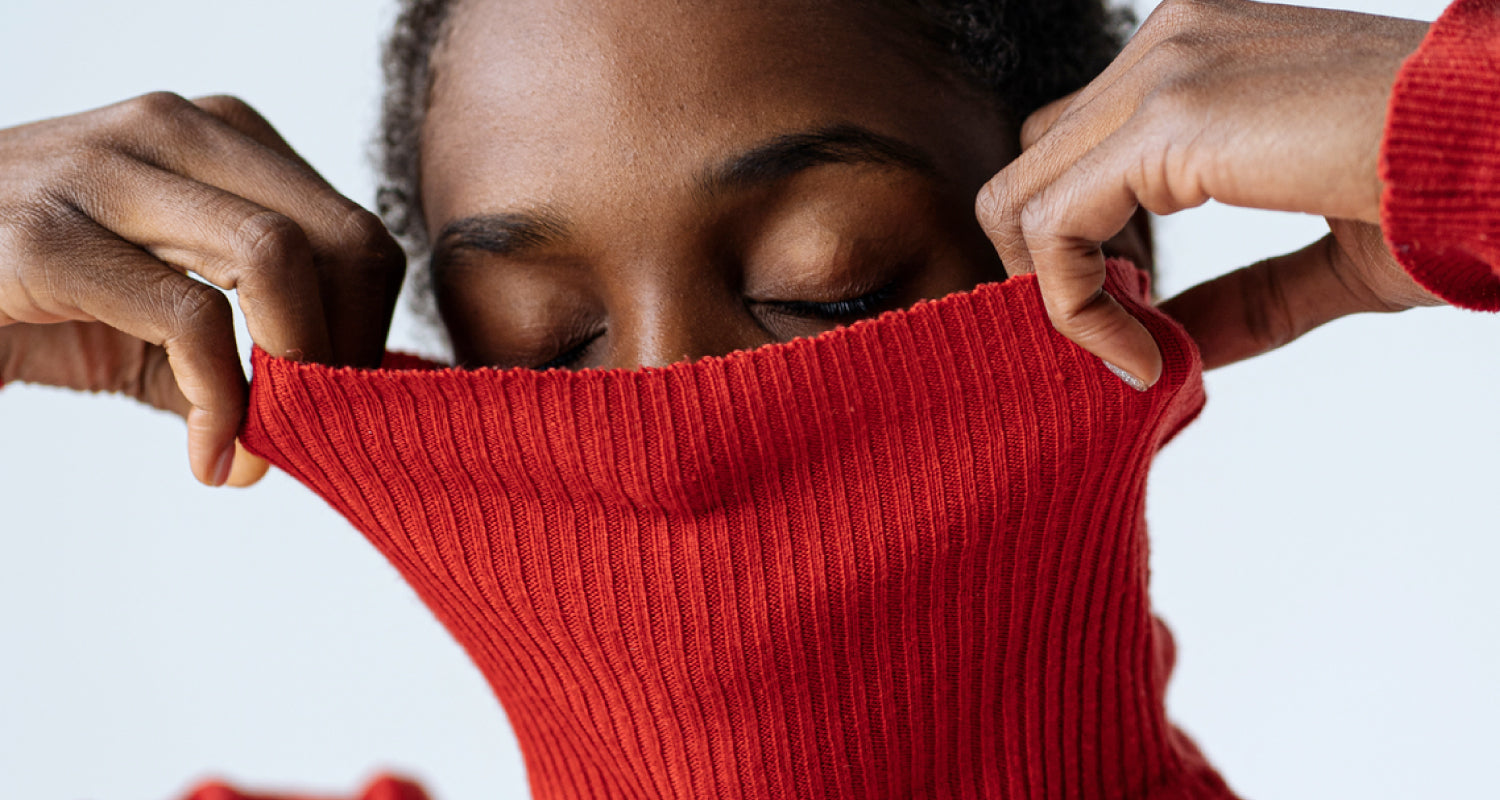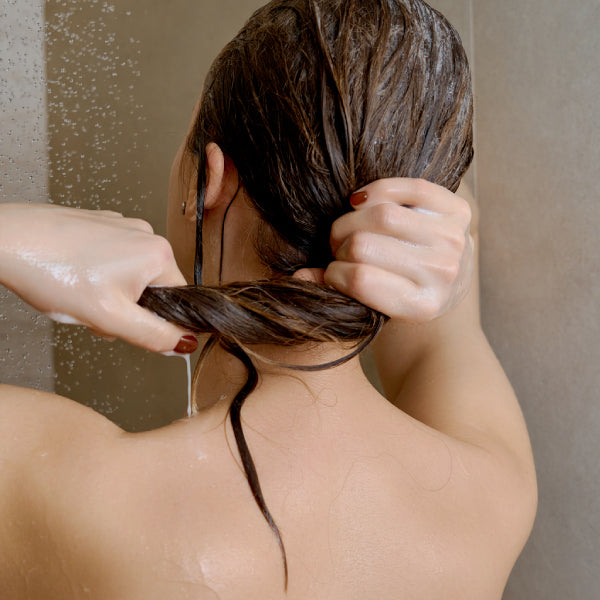
Picture the scene: a mountain covered in fresh snow, the sun at its zenith, a cold-but-not-too-cold temperature and a full day dedicated to your favorite winter sport. What's missing from this idyllic picture? Dehydrated, dry skin with sunburn, cold chapped hands and lips and dry, static-charged hair.
This dream scene, without the wintery hair and skin problems, could well become reality if you follow our sound advice!
1. Apply sunscreen

Look, we know we've been telling you this over and over, but applying sunscreen every day should be a routine. And just because the hot days of summer are behind us doesn't mean we have to put our SPF back in the medicine cabinet! Nuh-uh!
Did you know that UVA and UVB rays reflect off the snow1 and are amplified? Yes, that's why you look like an inverted raccoon at the end of a day of skiing with goggles! By using a good protection and moisturizer, you can avoid dry skin. So go ahead and apply a zinc oxide-based sunscreen to all areas of your body and face exposed to the sun. You'll thank us later.
Bonus tip: Get a compact sun stick that's easy to slip into your snowsuit pockets and makes touch-ups quick and effective without getting your hands dirty.
Does winter weather cause dry skin?
It's time to answer this yearly question. Although there are many factors that cause dry skin, the answer is yes: cold weather can be the cause of dry skin.
Winter weather is accompanied by a drop in ambient humidity, which causes skin thinning and fragility. Excessive exposure to wind or sun during winter sports can also aggravate skin dryness. Clothing can make the skin drier or irritate it, depending on the type of material (wool or synthetic fabrics)2.
2. Wear windproof clothing that wicks moisture

You might think that retaining body moisture helps moisturize the skin, but it's the opposite. Sweat released during physical activities can accumulate on the skin and cause irritation or rashes. We therefore prefer to wear multi-layered clothing made of moisture-wicking materials, and we make sure that our coats, gloves and boots are windproof to protect ourselves from the elements.
Bonus tip: Wash your clothes with a EWG VERIFIED™ laundry detergent and use unscented, reusable fabric softener that will protect you from the electric shocks of synthetic materials and soften the fabrics.
3. Drink lots of water
If you had ONE TIP to implement to improve almost every aspect of your health, it would be to make sure you drink enough water. Good internal hydration helps with external hydration and has many benefits. It's not just during summer sports that we need to drink plenty of water: our bodies sweat when we ski, snowboard or snowshoe too.
Bonus tip: Make it a habit to always have a (reusable!) water bottle on hand, whether at the gym or at home. You can also download a free application on your cell phone that will notify you when you need to remember to drink water! Say goodbye to dry skin and hello to hydration!
4. Take a cool shower

Shower as soon as you can after practicing your chosen sport. Quickly remove your wet clothes and jump under the cool spray to get rid of dirt, body oil and sweat. We know it's more than tempting to take a scalding shower when we've just spent several hours in the cold, but you must resist!
Although the hot steam from the shower is soothing in the very short term, it can worsen the condition of sensitive skin.
Bonus tip: Make sure you don't get dehydrated skin by setting the water to the approximate temperature of a heated pool in summer.
5. Choose nourishing skin care products
As for your skin care products, choose a dermatologically tested shower gel that is not astringent and pamper yourself with a body product with hydrating ingredients that cleanses and prevents dry skin.
The same goes for your hair care: choose products with moisturizing natural origin ingredients such as avocado oil, argan oil, or jojoba oil, for example. Well-nourished hair is less likely to generate static electricity.
Bonus tip: Choose shampoos and conditioners that moisturize or nourish.
6. Moisturize your skin

When you get out of the shower, be sure to dry your skin thoroughly yet gently, then move on to the ULTIMATE pampering stage (*drumrolls*) MOISTURIZING! Using a cream or lotion with natural-based ingredients such as plant-based butters and oils, take the time to moisturize your body... and take the opportunity to give yourself a good massage while you're at it!
A regular body moisturizing ritual can save you from many minor ailments caused by dryness and dehydration. Avoid cracked dry skin, dry hands and knuckles, chapped lips by applying lotion regularly.
Bonus tip: Keep a body lotion, hand cream and lip balm on your bedside table to remind you to use them daily. You can also carry your hand and lip products in your backpack or purse.
Now you're ready to tackle the elements for your favorite winter sport without having to suffer from dry skin, chapped lips or winter sunburn!
Let this season be just cold enough, just snowy enough... and properly moisturized! Here's to you!
Sources:
- Catherine Crépeau, « Le soleil serait plus néfaste l’hiver que l’été », 10 mars 2016, Protegez-vous.ca, https://www.protegez-vous.ca/nouvelles/sante-et-alimentation/le-soleil-serait-plus-nefaste-lhiver-que-lete
- https://www.biafine-lagamme.fr/corps/peau-seche-extra-seche/la-peau-seche-en-hiver